Search
Remove Ads
Advertisement
Summary 
Loading AI-generated summary based on World History Encyclopedia articles ...
Search Results
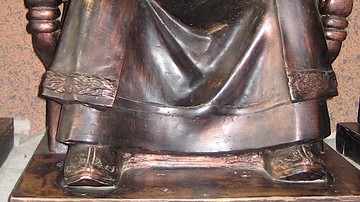
Definition
Chagatai Khanate
The Chagatai Khanate (also Chaghatai, Jagatai, Chaghatay or Ca'adai, c. 1227-1363 CE) was that part of the Mongol Empire (1206-1368 CE) which covered what is today mostly Uzbekistan, southern Kazakhstan, and western Tajikistan. The khanate...
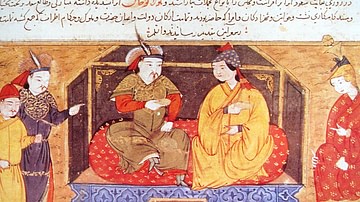
Definition
Ilkhanate
The Ilkhanate (or Ilqanate, 1260-1335 CE) was that part of the Mongol Empire (1206-1368 CE) which mostly covered what is today Iran and parts of Turkmenistan, Turkey, Iraq, Armenia, Afghanistan, and Pakistan. Established by the Mongol general...
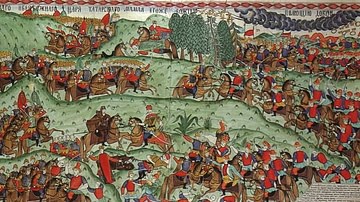
Definition
Golden Horde
The Golden Horde was the European appanage of the Mongol Empire (1206-1368 CE). Begun in earnest by Batu Khan in 1227 CE, the territory that would eventually become the Golden Horde came to encompass parts of Central Asia, much of Russia...
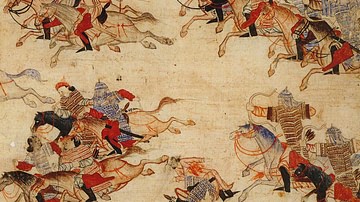
Definition
Mongol Empire
The Mongol Empire (1206-1368) was founded by Genghis Khan (r. 1206-1227), first Great Khan or 'universal ruler' of the Mongol peoples. Genghis forged the empire by uniting nomadic tribes of the Asian steppe and creating a devastatingly effective...

Image
Chagatai Khan
A modern representation of the Mongol leader Chagatai Khan (1183-1242 CE), the second oldest son of Genghis Khan (r. 1206-1227 CE), who was the first ruler of the Chagatai Khanate. (Mongol palace, Gachuurt, Mongolia)
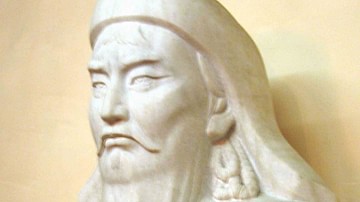
Definition
Genghis Khan
Genghis Khan (aka Chinggis Khan) was the founder of the Mongol Empire which he ruled from 1206 until his death in 1227. Born Temujin, he acquired the title of Genghis Khan, likely meaning 'universal ruler’, after unifying the Mongol tribes...
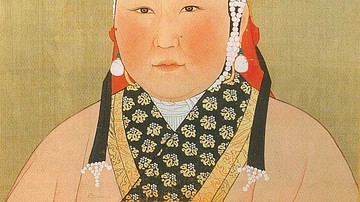
Article
Women in the Mongol Empire
Women in the Mongol Empire (1206-1368 CE) shared the daily chores and hardships of steppe life with men and were largely responsible for tending animals, setting up camps, childrearing, producing food and cooking it. Having rather more rights...
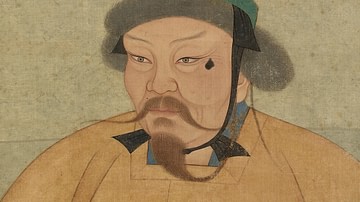
Definition
Ögedei Khan
Ogedei Khan (aka Ogodei) ruled the Mongol Empire from 1229 to 1241. He was the third son of Genghis Khan (r. 1206-1227), the empire's founder. Ogedei's accomplishments included creating a new capital at Karakorum, establishing a system of...
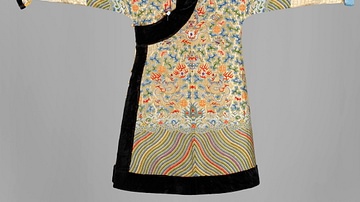
Article
Clothing in the Mongol Empire
The clothing worn by the Mongols in the 13th and 14th century CE, like most other aspects of their culture, reflected their nomadic lifestyle in the often harsh climate of the Asian steppe. Typical items included felt hats, long jackets with...
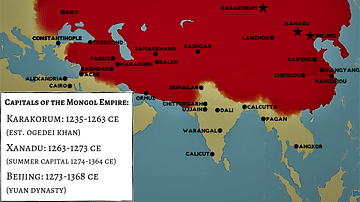
Collection
Genghis Khan & the Mongol Empire
Through the 13th and 14th century CE the Mongols forged the largest connected empire the world had ever seen and such figures as Genghis Khan and Kublai Khan were feared as the devil himself, their mounted warriors conquering for their leaders...